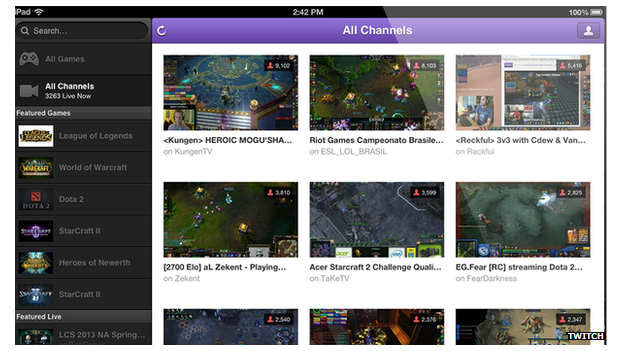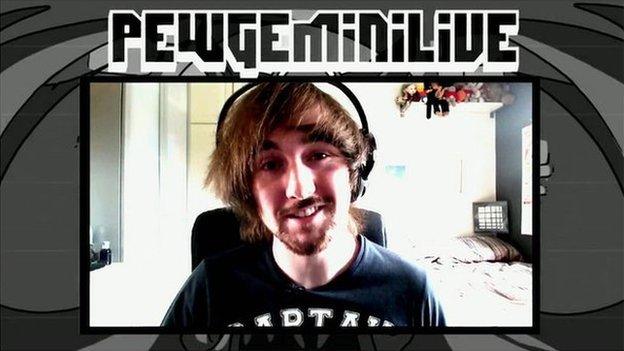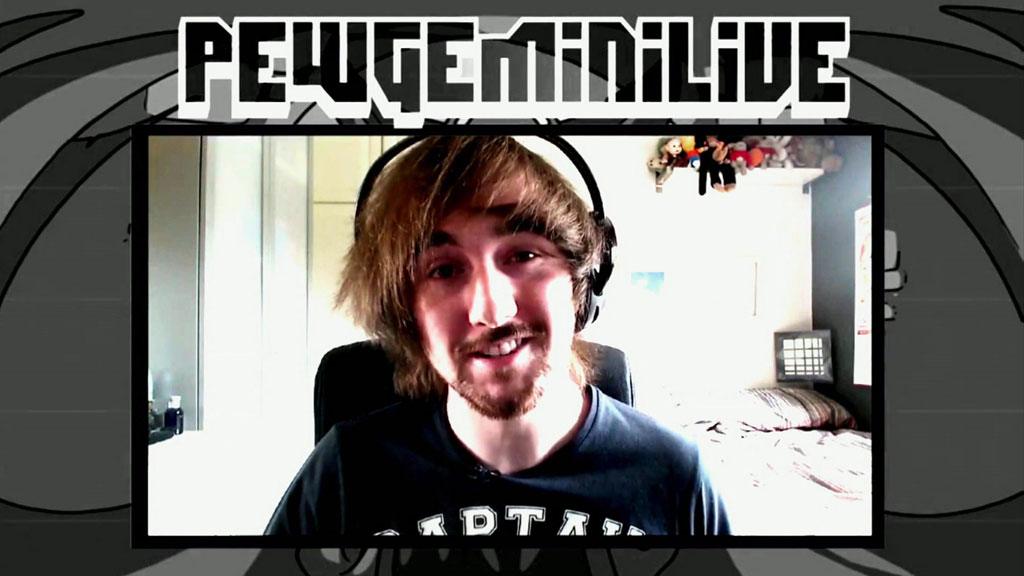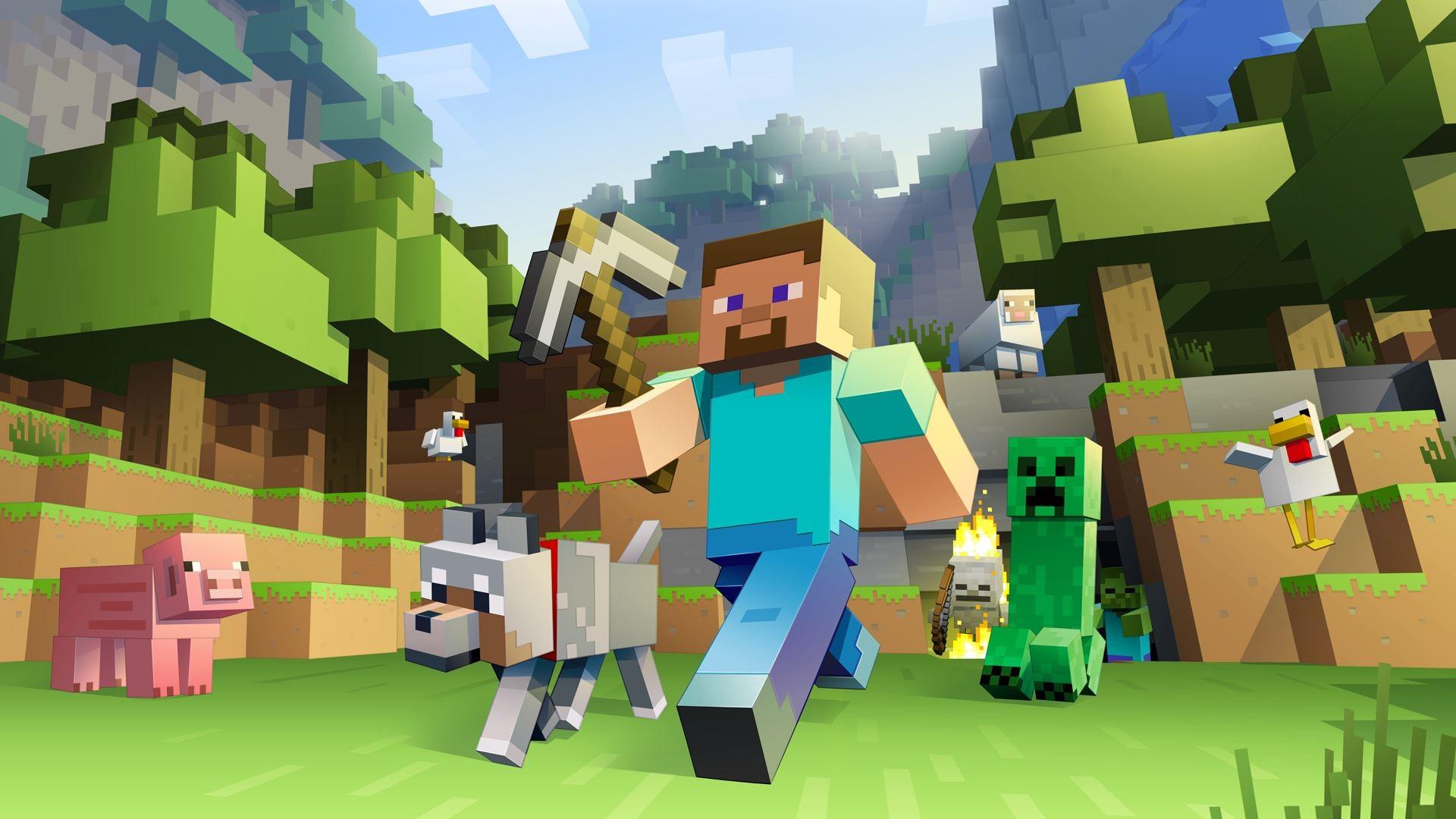YouTube takes on Twitch in live gaming showdown
- Published
Could YouTube's planned gaming channel rival Twitch?
To the uninitiated, the idea of watching someone else play a video game sounds incredibly tedious, as anyone who shared a games console with a sibling will know well.
But have a gander at these stats: 20 billion minutes watched every month; 1.5 million broadcasters; 11 million videos uploaded each month.
That's the level of activity happening right now on Twitch, the gaming streaming site owned by Amazon.
It's one of the industry's most lucrative growth areas, with top broadcasters - "casters" - commanding devoted audiences of millions.
And when you have that big a following, the commercial opportunities are enormous.
Appetite

Twitch allows users to upload clips of their gameplay as well as stream live games
And so that's why this year's E3 has set the scene for something of a showdown in the world of live game streaming.
Just before the gaming trade show kicked off, YouTube - owned by Google - announced the impending launch of YouTube Gaming.
Borrowing much from Twitch, it's YouTube's attempt at getting stuck in, using its already established might in monetising online video to tempt gamers on to the platform (and keep existing enthusiastic gaming YouTubers there).
"There clearly is an appetite for gaming when you see billions of hours of watch time," said Ryan Wyatt, YouTube's head of gaming content.
"People are entertaining, there's comedy, there's drama, there's animation. It's not necessarily people just playing video games. It's something much bigger than that."
It's a so far friendly rivalry between YouTube and Twitch, but with both companies keen to retain and attract talent, things could get very competitive very quickly.
Kevin Lin, chief operating officer at Twitch, told the BBC it took the players' financial motivations very seriously.
"Expanding the monetisation features is something we think about constantly - how we make sure [gamers are] making more money on our platform versus others."
And there's great money to be made. While none of the big-name casters on hand at E3 would be be drawn on what exactly they earn, one player - who goes by HikeTheGamer - said the financial rewards he'd enjoyed were "amazing". Casting was now his full-time job.
Another, Spamfish, had a more modest assessment, saying it was the most fun minimum wage job on the planet.
The money mostly comes through advertising, with the odd endorsement on the side. Both Twitch and YouTube offer revenue share agreements where adverts are displayed in and around the gaming content.
Relationships
The winning formula for what makes a successful caster isn't as obvious as you might think.
Being a big gaming name on Twitch and YouTube doesn't necessarily mean you need to be good at games - in fact, many of the most popular casters are decidedly terrible at the titles they play, but as a result they produce a charming, inclusive atmosphere on their respective channels.

PewGeminiLive is one of a growing band of successful gaming "casters"
"I really try to develop a relationship with my viewers," says SuushiSam, a Twitch caster.
She added: "I try to grow a community and get to know each individual viewer as much as I can."
Such an approach gets more difficult as time goes on - particularly if you reach the dizzying heights of JeromeASF. He creates gaming videos on YouTube and has a following of more than three million people.
"I did this for about three or four years without making a dime," he said.
"So when I genuinely say 'I love what I do', it's because I love what I do."
Swatted
But not all of it is enjoyable.
Online troublemakers - to put it kindly - have gone out of their way to find the addresses of top gamers and target some high-profile casters with what is known as "swatting".
By calling the local police and making it sound like an armed person is on the loose, or there's a bomb threat, pranksters have been able to concern authorities so much that Swat teams will descend on a gamer's house, and the drama unfolds live in front of the Twitch or YouTube audience.
Casters are reluctant to touch upon this side of the industry, fearing that talking about it may just encourage more.
One of the gamers - who didn't want to be named - frequently receives death threats.
And of course, like any job, it comes with its fair share of drab moments.
"Don't expect to instantly make money. It is a lot of hard work. A lot of people think we just sit on our butts and eat junk food and play video games all day," says SuushiSam.
"But there's a lot more to it. Scheduling when you want to broadcast, networking with people, social media - it is a lot of hard work."
YouTube Gaming launches fully later this year, while Twitch has promised to invest in its infrastructure to address problems with stability and latency.
Which one of them will come out on top is anyone's guess. But then, the popularity of live game streaming is growing so fast, there's probably ample room for both to thrive.
Follow Dave Lee on Twitter @DaveLeeBBC, external
- Published5 November 2014

- Published12 June 2015
